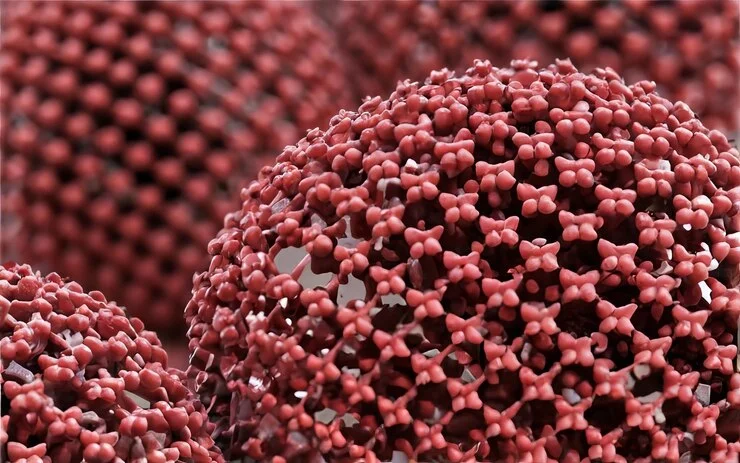-
BP Poddar Hospital
BP Poddar Hospital

Discover the key benefits of Minimally Invasive Surgery for Cancer. Learn how it improves recovery, reduces pain, and enhances outcomes with one of the best surgical oncologists.

Cancer treatment has evolved significantly over the years, with innovations aimed at improving patient outcomes and minimizing discomfort. One such advancement is Minimally Invasive Surgery for the Treatment of Cancer. Unlike traditional surgical methods that require large incisions, minimally invasive surgery uses small incisions and specialized tools to treat cancer more effectively. In this article, we will explore the key benefits of this advanced technique and how it can provide better outcomes for cancer patients.
Minimally Invasive Surgery for Cancer refers to procedures that use small incisions, typically less than an inch, to access and remove cancerous tissues. Special instruments such as laparoscopes (small tubes with cameras) and robotic systems are used to perform the surgery with greater precision and control. These tools allow surgeons to view and operate on the cancerous area without the need for large incisions.
This technique is used to treat various cancers, including those of the colon, stomach, lungs, prostate, and liver. As the demand for less invasive procedures grows, Minimally Invasive Surgery for Cancer continues to transform how cancer surgeries are performed, benefiting both patients and medical professionals.

One of the primary benefits of Minimally Invasive Surgery for Cancer is that it allows for quicker recovery times. Traditional cancer surgeries often require larger incisions, leading to more trauma to the body, longer hospital stays, and a more extended recovery period. With minimally invasive techniques, the smaller incisions result in:
Pain is a significant concern for many cancer patients undergoing surgery. Traditional open surgeries, which involve large incisions, often lead to higher levels of post-operative pain and discomfort. In contrast, Minimally Invasive Surgery for Cancer causes significantly less pain for the patient due to the smaller incisions and reduced tissue damage.
As a result, patients experience:
In any surgery, infection is a significant concern. Traditional surgeries leave larger wounds that are more susceptible to infection. However, Minimally Invasive Surgery for Cancer uses smaller incisions that are less likely to get infected. This advantage is especially important for cancer patients whose immune systems may be weakened by chemotherapy or radiation treatments.
Additionally, the smaller incisions reduce the need for drains and stitches, further lowering the risk of infection and complications.
One of the key concerns for many cancer patients is the appearance of scars after surgery. With traditional surgery, large incisions often result in prominent scars, which can have a psychological impact on patients. Minimally Invasive Surgery for Cancer uses tiny incisions that are discreet and typically heal with minimal scarring.
The cosmetic benefit of this approach is particularly important for patients who are concerned about their appearance after surgery, as it can help preserve their self-esteem during an already challenging time.
Minimally Invasive Surgery for Cancer offers enhanced precision, especially with the use of robotic-assisted techniques. Robotic systems provide surgeons with better control, sharper visuals, and the ability to make more precise movements. This level of accuracy is essential in delicate areas where it is crucial to avoid damaging surrounding tissues, such as in prostate or brain cancer surgeries.
The precision of robotic systems ensures that cancerous tissue can be removed effectively while preserving healthy tissue, which can lead to better functional outcomes and lower recurrence rates.
Due to its less invasive nature, Minimally Invasive Surgery for Cancer is associated with fewer complications compared to traditional surgery. For example, the smaller incisions reduce the chances of blood clots, excessive bleeding, or delayed wound healing. Additionally, the precision of the surgery means that the cancer is less likely to be left behind, reducing the risk of recurrence.
The reduced risk of complications and recurrence is critical in ensuring better long-term outcomes for cancer patients.
While Minimally Invasive Surgery for Cancer has numerous benefits, it is not suitable for all patients or all types of cancer. The decision to use this technique depends on:
Patients should consult with a qualified surgeon to discuss the best treatment options for their specific cancer diagnosis.

Minimally Invasive Surgery for Cancer can be used for various types of cancer, including colon, prostate, lung, liver, and stomach cancers. However, the suitability of the technique depends on factors such as cancer location and stage.
Not all patients are candidates for minimally invasive surgery. Factors such as the patient’s overall health, cancer type, and location, and the expertise of the surgeon play a role in determining whether this approach is appropriate.
Recovery time varies by patient, but many people can resume normal activities within a few weeks after Minimally Invasive Surgery for Cancer. Hospital stays are generally shorter, and pain levels are much lower than with traditional surgery.
Yes, studies have shown that Minimally Invasive Surgery for Cancer offers similar, if not better, long-term outcomes compared to traditional surgery. The technique provides better precision, fewer complications, and quicker recovery times, making it an effective option for many patients.
Although Minimally Invasive Surgery for Cancer is generally considered safe, it carries risks like any surgery. These include infection, bleeding, or injury to surrounding tissues. However, the risk of complications is generally lower compared to traditional open surgery.
Minimally Invasive Surgery for Cancer offers numerous advantages over traditional open surgery, including faster recovery, less pain, fewer complications, and better cosmetic outcomes. For many cancer patients, this approach has become the preferred option, thanks to its ability to treat cancer with precision while minimizing the trauma to the body.
While this technique may not be suitable for all patients or types of cancer, it represents a significant step forward in cancer treatment. If you or a loved one are facing cancer surgery, consider discussing minimally invasive options with your best surgical oncologist in Kolkata to explore whether this approach is right for you. Always consult with a qualified and experienced surgical oncologist to ensure the best possible outcome.

January 30, 2025

January 29, 2025

January 28, 2025